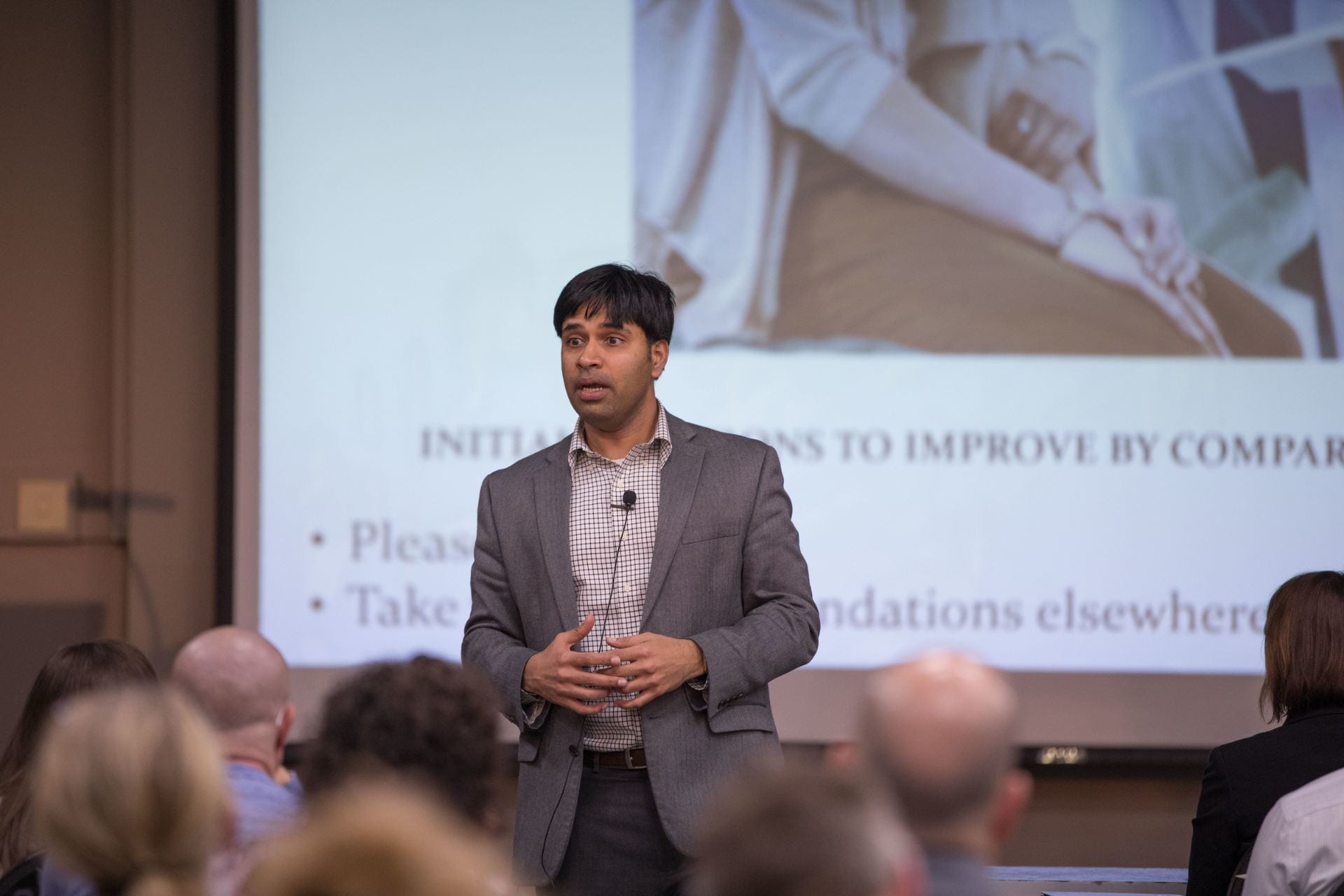
Aravind Chandrasekaran is associate dean for Graduate Programs and Executive Education and distinguished professor of Operations and Business Analytics at the Fisher College of Business. He earned a bachelor’s degree in mechanical engineering from Anna University India, a master’s degree in industrial engineering and a PhD in operations and management science at the University of Minnesota.
In 2015, Fisher College of Business faculty members Aravind Chandrasekaran, Peter Ward and Anil Makhija decided to broaden the horizon of their research to the Indian subcontinent. They collaborated with IIT Bombay to develop an executive program for managers working at different conglomerates. Chandrasekaran and Ward spearheaded a corporate engagement with Tata Management Training Centre (TMTC) and initiated the first cohort of ‘Leadership in execution excellence program’ for Senior Managers at Tata motors in 2018. Conversations with the Mahindra Institute of Quality (MIQ) led to a Post Graduate Diploma in Operations Management (PGDOM).
Capitalizing on a highly ranked Center for Operations Excellence, Fisher initiated executive education for the Tata group and Mahindra group which eventually broadened to their other group companies within Tata and Mahindra. TGeLS is one of the programs currently taught at Tata, the curriculum covers broader business acumen, including strategy, marketing in addition to operations. Similarly, over 1,500 managers trained virtually for Tata Consultation Services. A highlight of that program was the operations project where managers had to troubleshoot problems using different tools which enabled them to think differently about management tasks.
Academic collaboration with the S. P. Jain Institute of Management and Research (SPJIMR) facilitated three cohorts of E-MBA students’ travel to Columbus to participate in the ‘Operations Excellence Summit’ until it was interrupted by the pandemic. The partnership also enabled a faculty exchange between India and Ohio State.
Chandrasekaran believes that various Indian organizations having a presence in the U.S. and likewise, U.S. organizations with their presence in India can be explored to enable student mobility and cross-country employment. Global Applied Projects (GAP) spearheaded by Chandrasekaran is an example of experiential learning, where students from Fisher travel to different countries in Asia, Europe and South America for a ten-week company-sponsored project. The program includes spending three weeks with the host organization. GAP in India have created a ripple effect and more organizations are looking forward to inviting Fisher students.